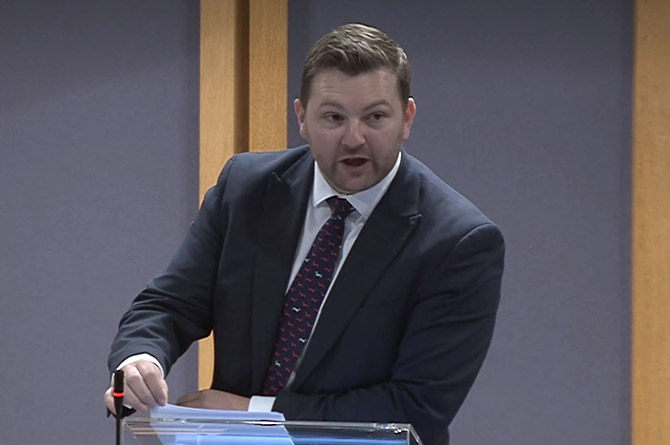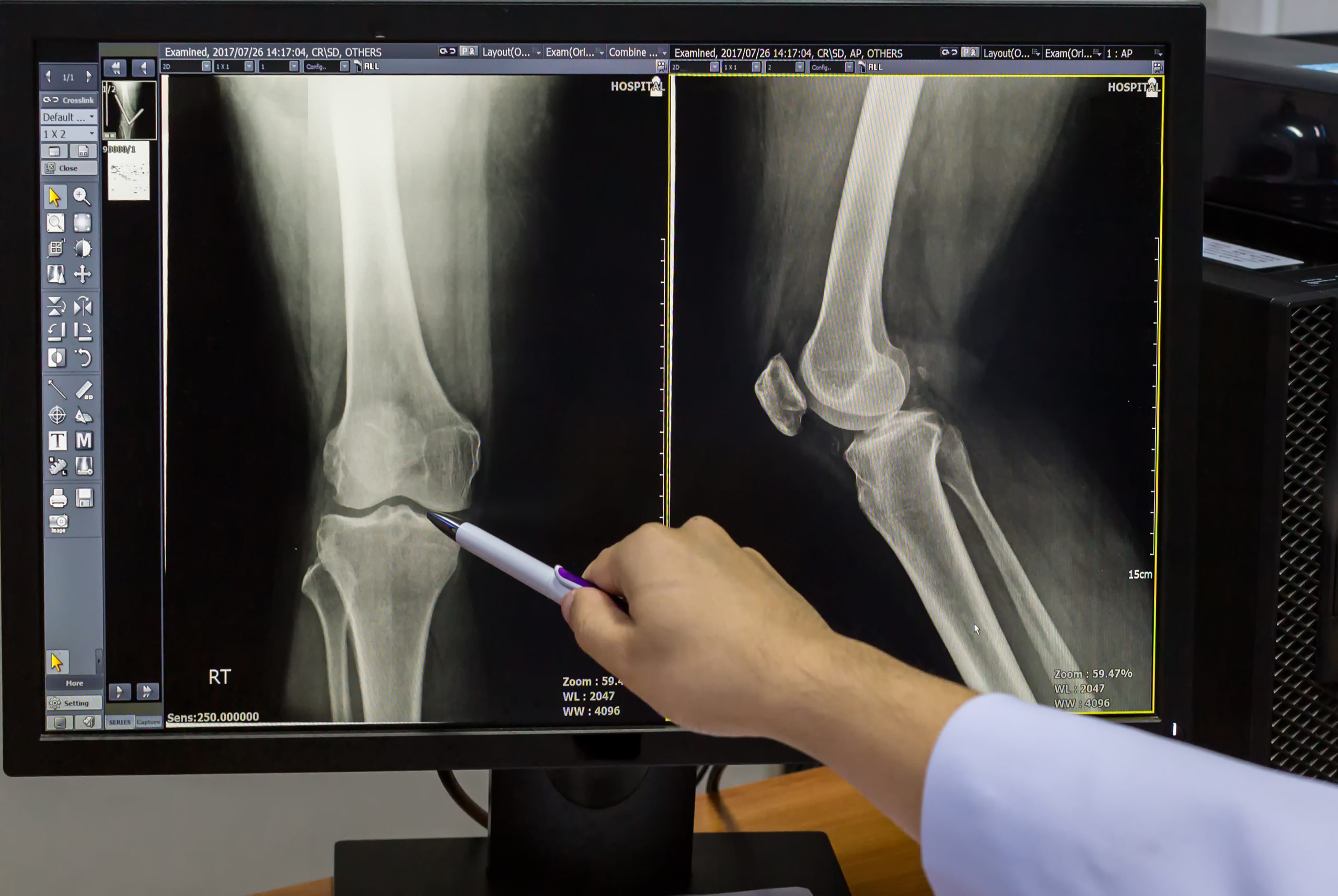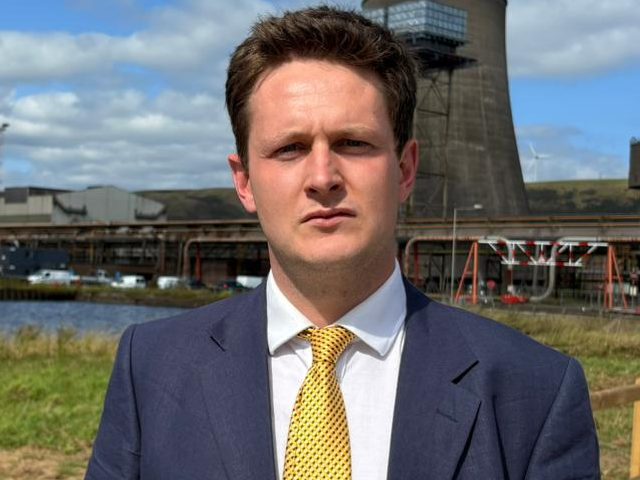Politics
‘Lack of clarity’ in Wales Bill

 A REPORT on the Wales Bill, published by the House of Lords Constitution Committee, has stated that the lack of clarity over the demarcation of powers between the UK Parliament and Welsh Assembly not only risks future litigation, but the need for further legislation to clarify the settlement.
A REPORT on the Wales Bill, published by the House of Lords Constitution Committee, has stated that the lack of clarity over the demarcation of powers between the UK Parliament and Welsh Assembly not only risks future litigation, but the need for further legislation to clarify the settlement.
The report welcomes the move from a ‘conferred powers’ model (where the Welsh Assembly can only legislate on matters specifically devolved to it) to a ‘reserved powers’ model (where Welsh Assembly can legislate on any subject not explicitly ‘reserved’ by the UK Parliament). The reserved powers model offers a relatively clear and simple division of powers, as well as allowing the Welsh Assembly ‘constitutional space to legislate’. However, the Committee say that the way the Wales Bill implements the reserved powers model undermines these key advantages.
The complexity of the settlement set out in the Wales Bill, in which numerous legal tests interact with hundreds of matters reserved to the UK Government and Parliament, risks the courts being asked to make decisions about whether the National Assembly for Wales has the power to make laws in certain areas. The Committee contrasts this with the simpler settlement set out in the Scotland Act 1998, where the subjects reserved to Westminster are relatively limited, ensuring greater clarity about the devolution of powers.
The Committee also point out that in some areas, the list of reserved matters is so extensive, and the number of legal tests that must be met for the Assembly to use its powers are so vague, that the switch to a reserved powers model is likely to actually result in a return of power from the Welsh Assembly to Westminster.
The Committee call on the Government to explain whether the Wales Bill is actually intended to reduce the legislative competence of the Welsh Assembly in some areas and, if not, what steps they plan to take to ensure that the competence of the Assembly is not inadvertently reduced.
The Committee notes, for example, that absolute restrictions on the Assembly’s ability to modify criminal law in relation to sexual offences may affect its ability to exercise its legislative competence in relation to the protection and well-being of children and young adults.
The Committee notes that there is ‘no evidence of a clear rationale’ for the powers devolved by the Wales Bill and calls on the Government to explain the principles which underpin the devolution proposals set out in the Bill.
The Committee points out that in its recent report, The Union and Devolution, it recommended that further devolution should be managed in a coherent way based on sound principles and clarity about the purpose of the proposed devolution. It says the Government has failed to provide a clear rationale for the scope of powers devolved by the Wales Bill.
Lord Lang of Monkton, Chairman of the House of Lords Constitution Committee, said: “My Committee have taken a long and serious look at devolution within the UK in the last year and we bring that experience with us in examining the Wales Bill.
“We welcome the Wales Bill’s move from a ‘conferred powers’ to a ‘reserved powers’ model of devolution. However, the list of reservations is so extensive, and the legal tests that govern the Assembly’s powers so complex and vague, that it could be a recipe for confusion and legal uncertainty. The outcome is likely to be increased litigation as the courts are asked to decide exactly where the boundaries of the Assembly’s authority lies.
“We are disappointed that there is no clear explanation from the Government as to the rationale for the scope of the powers being devolved under the Wales Bill. As we noted in our report, The Union and Devolution, devolution must take place on the basis of appropriate principles to ensure that the devolution settlements evolve in a coherent way, rather than in a reactive, ad hoc manner.
“The Bill also risks, in some areas, actually reducing the powers of the Welsh Assembly. We have asked the Government whether that was their intention, and if not, how they intend to avoid unintentionally diminishing the Assembly’s powers.
“The Wales Bill starts Committee Stage in the House of Lords next week. This is the first stage where amendments can be made and debated and where the detail of the Bill is examined closely. I hope our report will be helpful to the House in informing that debate.”
This week, the Director of the Welsh Governance Centre, Professor Richard Wyn Jones, also raised concerns that the Wales Bill was being ‘rammed through Parliament’, and suggested that it could be blocked by the Welsh Government. Speaking to the BBC, he said: “It is genuinely hard to find people who aren’t directly involved on the UK government side with a good word to say about this legislation, certainly in terms of the detail,” he said.
“What was striking, we did have a consensus, an all-party consensus, in terms of moving to a reserved powers model.
“What’s particularly depressing is, in the enactments of that good intention, we’ve reached a stage where everybody who is looking at this in a relatively dispassionate way is pointing to some fundamental problems.
“I don’t think that anybody is going into this wanting it to fail, in terms of the critics. This is the only piece of legislation on the table, there is a sense the status quo is unsatisfactory and so people want this to work.
“There have been lots of constructive suggestions for change from the Welsh Government, from the National Assembly presiding office, and yet the legislation is being rammed through Parliament with, so far, only very small changes being conceded.”
However, the Leader of the Welsh Conservatives, Andrew RT Davies, described the ‘landmark’ legislation as offering ‘greater clarity and accountability than ever before in the devolved era’.
“Labour had 13 years in power to address concerns over where power resides and made no meaningful attempt to establish a lasting settlement. Whereas Conservatives have delivered a significant breakthrough, demonstrating our party’s commitment to devolution and the place of Wales as a full partner in the UK,” he added after the MPs gave the Bill an unopposed third reading in September.
“We now have an opportunity to move on from constitutional affairs, and the Welsh Government must now make best use of the tools at its disposal and deliver for Welsh communities; creating jobs, developing the Welsh economy and improving our public services.”
News
Kurtz criticises Tufnell over GP pressures at Argyle Medical Centre

Local MS says Welsh Government decisions are root cause of crisis
CONSERVATIVE Senedd Member Sam Kurtz has criticised Labour MP Henry Tufnell after the MP suggested GP practice management should be held accountable for patient dissatisfaction at Pembroke Dock’s Argyle Medical Centre.
Patients registered at the surgery have for years raised concerns about access to appointments, particularly difficulties securing same-day consultations and long waits to get through on the phone.

Speaking to BBC Wales, Mr Tufnell said he had discussed the situation with the Health Board’s Chief Executive and claimed the senior official “feels powerless” to intervene.
He said: “I’ve spoken to the Chief Executive of the Health Board, and he feels powerless to do anything about it. We need to come together and hold the management of these surgeries to account; there must be transparency about what they’re doing, and, fundamentally, we need reform in the system.”

Mr Kurtz responded angrily, arguing that responsibility for reforming NHS Wales rests with the Welsh Government, not GP surgeries or frontline staff.
He said: “I don’t think it’s very helpful to point the finger at the surgery and suggest the fault lies with them when staff are working incredibly hard.
“If he wants to point the finger, it should be at his Labour colleagues in Cardiff Bay, who have continuously piled pressure onto GP practices by imposing contracts that are extremely difficult to deliver. That is why surgeries like Argyle are under such strain.”
Mr Kurtz later told The Pembrokeshire Herald that the problems faced by GP practices across Pembrokeshire were the result of long-term policy failures rather than poor local management.
“As someone born and raised in Pembrokeshire, I have seen first-hand the damage caused by the Welsh Labour Government’s mismanagement of our local NHS, despite the dedication and professionalism of frontline staff who continue to do their very best in increasingly challenging conditions,” he said.
“Anyone seeking to place the blame on NHS staff should back off. The fault does not lie with them. Real improvement will only come through properly supporting GP practices, listening to their concerns and working with them rather than against them.”
Argyle Medical Group is the second-largest GP practice in Wales, serving around 25,000 registered patients with nine GPs — an average of approximately 2,800 patients per doctor. In 2021, the practice had the equivalent of 10.75 full-time GPs and was actively seeking to recruit more.
However, ongoing recruitment difficulties forced Argyle to withdraw from its contract at St Clement’s Surgery in Neyland and reduce hours at St Oswald’s Surgery in Pembroke. Following the Neyland closure, patients were transferred to the Neyland and Johnston Medical Practice, which later handed back its GP contract after retirements and further recruitment problems. Those patients are now treated by salaried and locum GPs employed by the Health Board.
Similar pressures are being felt across Pembrokeshire, from Tenby in the south-east to St Davids in the north-west. While Wales does not face “GP deserts” on the same scale as the well-documented shortage of NHS dentists, reduced access to general practice has contributed to more patients attending hospital for conditions once routinely dealt with by GPs. This has placed additional strain on hospital services and staff.
In 2018, the Welsh Government pledged to recruit 1,000 additional GPs into NHS Wales. While overall GP headcount has risen, the number of full-time GPs has continued to fall. Many newer recruits work part-time, as locums, or on limited contracts, meaning fewer doctors are available in practice on a day-to-day basis.
Newly qualified GPs have also tended to favour larger urban centres, particularly along the M4 corridor and in north-east Wales, where professional support and career opportunities are greater. Critics argue that Welsh Government recruitment and retention strategies have failed to address persistent shortages in rural and coastal communities.
There are also ongoing shortfalls in independent prescribing pharmacists and community nursing staff, limiting efforts to relieve pressure on GP surgeries.
Mr Kurtz said: “The foundation of NHS care — with GPs as the first point of contact — has buckled. Blaming GP staff is a distraction. The issues are structural, long-term and political, and ultimately the buck stops in Cardiff Bay.”
Health
NHS Wales spends more than £15.5m on agency radiographers as pressures grow

NHS WALES has spent more than £15.5 million on agency radiography staff over the past five years, as mounting pressure on diagnostic imaging services raises concerns about long-term workforce sustainability.
Figures obtained by the Welsh Liberal Democrats through Freedom of Information requests show that spending on temporary radiographers almost doubled between 2020/21 and 2023/24, despite relatively low headline vacancy rates across Welsh health boards.
Radiographers carry out X-rays, CT, MRI and ultrasound scans, which are essential to emergency care, cancer diagnosis, trauma treatment and elective surgery. Delays or shortages in imaging services can have a knock-on effect across patient pathways, slowing diagnosis and treatment.
The data also highlights an ageing workforce. More than a quarter of radiographers in Wales are aged over 50, with more than one in ten aged 55 or above. In some health boards, a significantly higher proportion of staff are approaching retirement age, raising concerns that experienced radiographers could leave faster than they can be replaced.
Betsi Cadwaladr University Health Board recorded the highest agency spend, at more than £8.1m over the period covered by the FOI requests. Other health boards also reported growing reliance on temporary staff to maintain services, particularly where specialist skills are required.
While official vacancy figures remain comparatively low, professional bodies have previously warned that vacancy data does not always reflect pressure on services, as posts can be held open or covered through overtime and agency staff rather than filled permanently.
Diagnostic imaging demand has increased steadily in recent years, driven by an ageing population, advances in medical imaging technology, and rising referrals linked to cancer and long-term conditions.
Commenting on the findings, Welsh Liberal Democrat Leader Jane Dodds MS said:
“Radiographers are absolutely vital to the NHS. From diagnosing cancer to treating people in A&E, the vast majority of patient journeys depend on timely access to scans.
“These figures show a system increasingly relying on expensive agency staff while failing to plan properly for the future workforce. That is not fair on patients, and it is not fair on staff who are already under huge pressure.
“The Welsh Labour Government must take urgent action to improve recruitment and retention, support experienced staff to stay in the workforce for longer, and ensure NHS Wales has a sustainable radiography workforce fit for the future.”
The Welsh Government has previously said it is working with health boards to improve recruitment and retention across NHS Wales, including expanding training places and supporting flexible working arrangements to help retain experienced staff. Ministers have also pointed to record numbers of staff working in the NHS overall, while acknowledging ongoing challenges in hard-to-recruit specialties.
However, opposition parties and professional bodies continue to warn that without long-term workforce planning, reliance on agency staff could increase further, adding to costs and pressure on already stretched diagnostic services.
Politics
Ajax armoured vehicle trial paused again as MP warns jobs must be protected

A FRESH pause to trials of the Ajax armoured vehicle programme has prompted renewed calls for workers’ jobs in Wales to be safeguarded.
The trial has been halted after another soldier reportedly fell ill during testing, adding to a series of delays and technical problems that have dogged the long-running Ministry of Defence project.
Welsh Liberal Democrat Westminster spokesperson David Chadwick MP said the repeated failures raised serious questions about accountability and cost.
He warned ministers must ensure taxpayers are not left footing the bill if the programme ultimately collapses, arguing that responsibility should rest with defence contractor General Dynamics.
“With the Ajax programme beset by repeated failures and significant delays, ministers need to confirm that taxpayers will not be left to bear the cost of these failures,” he said.
“If the project does end up being scrapped, the Government must ensure that the 400 workers currently employed on the programme in Merthyr Tydfil will receive full support.”
Mr Chadwick added that the Merthyr site should be prioritised for future defence and military development work if Ajax does not proceed, to protect skilled jobs and investment in the area.
The Ajax programme has faced years of scrutiny over safety concerns, excessive noise and vibration, and mounting delays, with the latest pause reigniting pressure on the Government to clarify the project’s future.
-

 Crime1 day ago
Crime1 day agoMilford Haven man jailed after drunken attack on partner and police officers
-

 News4 days ago
News4 days agoDyfed-Powys Police launch major investigation after triple fatal crash
-

 Crime1 day ago
Crime1 day agoTeenager charged following rape allegation at Saundersfoot nightclub
-

 Crime2 days ago
Crime2 days agoMan charged with months of coercive control and assaults
-

 Crime3 days ago
Crime3 days agoMan sent to Crown Court over historic indecent assault allegations
-

 Crime5 days ago
Crime5 days agoMan spared jail after baseball bat incident in Milford Haven
-

 Crime3 days ago
Crime3 days agoMilford Haven man admits multiple offences after A477 incident
-

 Crime2 days ago
Crime2 days agoWoman ‘terrified in own home’ after ex breaches court order





















